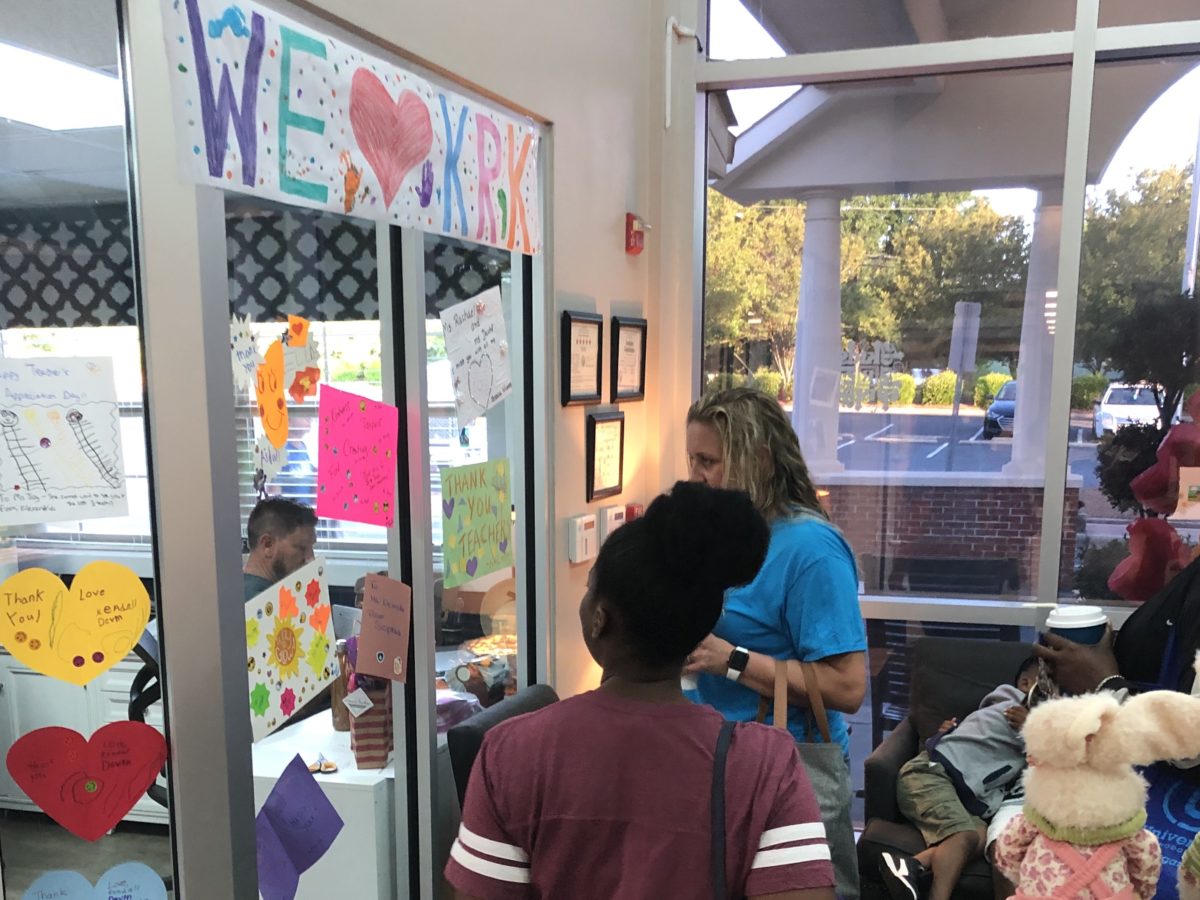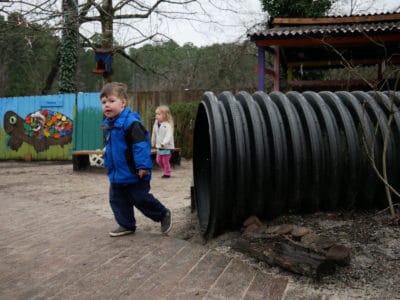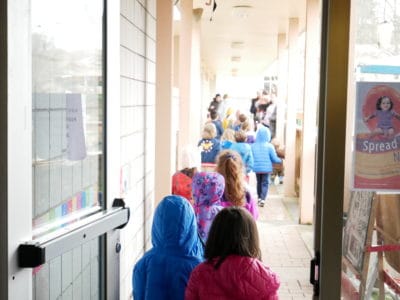
Financial relief could come as soon as next week for child care centers that have been caring for children despite the risks of COVID-19.
The state Department of Health and Human Services (DHHS) will provide between $500 and $30,000 per month for licensed child care centers and between $359 and $2,500 per month for licensed family child care homes that have opened for part or all of April, May, and June.
“We are so thankful that so many of the programs were open during this pandemic and were offering child care,” Kristi Snuggs, interim director of the department’s Division of Child Development and Early Education (DCDEE), said Friday on a webinar. “And we know that those of you who were open and even those of you who chose to close and are now considering reopening, we realize that you’ve suffered significant financial losses during this time from reduced enrollment and reduced revenue.”
Centers and homes are eligible for grants if they were open and serving children of essential workers in April or if they reopen in May or June. Under the state’s first phase of reopening, which began May 8, child care centers may now also serve children of working parents or parents looking for work.
Unlike K-12 schools, centers were allowed to remain open to serve children of essential workers during the state’s partial shutdown, which brought financial challenges and health risks. About half of the state’s centers closed. About a third of centers responding to a survey by the National Association for the Education of Young Children said they would not survive a closure of more than two weeks unless they had government support.
If open since April as an emergency child care provider, a facility will receive two months’ worth of grants next week, Snuggs said. If a center reopens in May, a two-month payment will arrive in mid-June.
Snuggs said the money is intended to be used for fixed costs, such as mortgage or rent payments and utilities. But it is up to the facility to decide how to use the funds “to make up for those lost revenues,” she said Friday.
These grants are being paid for with federal Coronavirus Aid, Relief, and Economic Security (CARES) Act funding through the Child Care Development Block Grant program. North Carolina received $118 million to sustain child care centers through the challenges of COVID-19.
Sign up for Early Bird, our newsletter on all things early childhood.
The size of each grant will depend on multiple factors and will be calculated and allocated by DCDEE — centers and homes do not need to apply. Those factors, along with explanations from DCDEE’s email, include:
- Pre-COVID enrollment
- “Programs serving more children will receive larger grants.”
- Star rating
- “Programs with a higher star rating will receive larger grants because of the higher cost to meet higher standards.”
- Infant/toddler enrollment
- “Programs serving infants and toddlers will receive larger grants to account for higher staffing and fixed costs associated with caring for infants and toddlers.”
- Subsidy children enrollment
- “Programs that have served subsidy children in the past 12 months will receive larger grants than programs that do not serve families and children receiving child care subsidy. Federal Child Care Development Funds are intended to increase access to quality care for families and children with low incomes. However, because of the unique challenges programs are facing as a result of the COVID-19 crisis, all programs will receive some level of grant support.”
- Subsidy density
- “Because DCDEE is continuing to stabilize child care subsidy monthly payments to child care providers based on February enrollment, programs that have higher percentages of children on subsidy are getting more of their typical monthly revenue covered than programs that have lower percentages of children on subsidy and rely more heavily on private fees from parents. Therefore, programs with lower percentages of children on subsidy will receive larger grants.”
Centers and homes can find out how much money they will receive by calling 919-703-5262 or emailing dcdee.communications@dhhs.nc.gov.
Recommended reading



